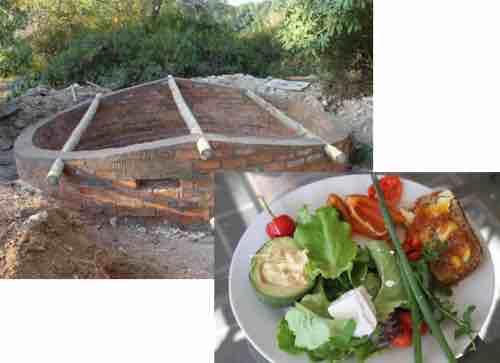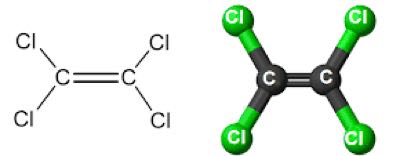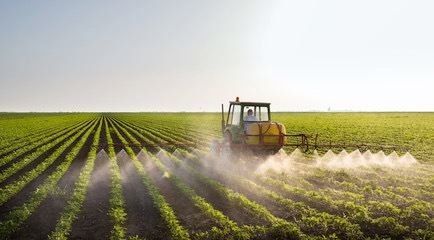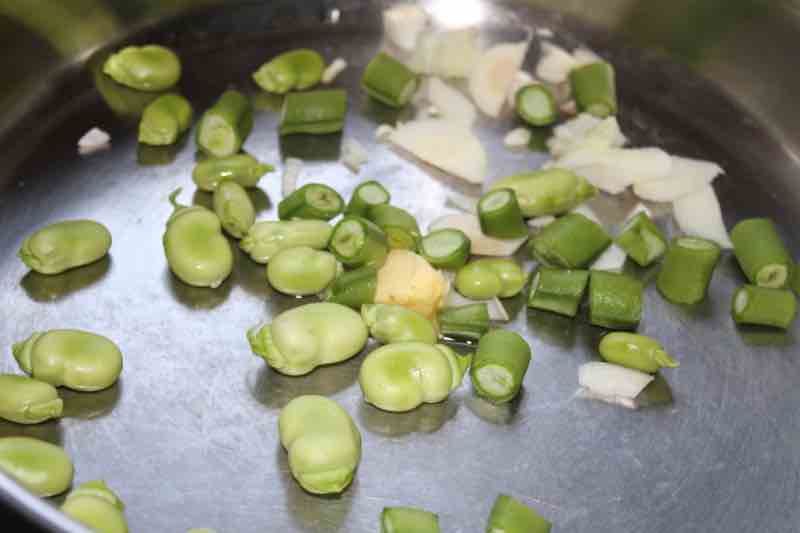| Back to Back Issues Page |
 |
|
A world largely devoid of Parkinson's Disease December 04, 2023 |
DearA world largely devoid of Parkinson's DiseaseA world largely devoid of Parkinson's Disease is not just a pipe-dream; we can make it happen if we take action to protect ourselves. Welcome to the world of Cyan Zones; creating little havens intent on protecting both ourselves and Mother Earth in this environment hostile to wellness and careless of preserving the planet in its once pristine state. On a personal note I have had an undue interest in Parkinson's Disease since a nasty tremor began in my right hand when I was still in my forties. The neurologist said it might turn into PD in my dotage. It was a fairly rare condition back in those days but is now the fastest growing brain disease; the prevalence has doubled in the last 25 years and medical scientists are saying it's still increasing in leaps and bounds. That is especially true in the industrialised world; five times greater prevalence. There are 90,000 new cases each year in the U.S; and a massive one quarter of those over 65 years of age in China. And there is a trend towards younger people being affected. Based on aging alone conservative estimates predict it is going to double again by 2050. It doesn't just affect other people. These stats give cause for all of us to stop and consider. What can I do? First is to understand what is fueling the flames. Alkyl halidesAlkyl halides have now been proved to be one of the major causes of Parkinson's Disease. They are organic compounds attached to atoms like chlorine or fluorine; the halogens.Tri and perchloro-ethylene are two of the most commonly fingered alkyl halides that are now known to cause PD; and they are everywhere.
Perchloro-ethylene Perchloro-ethylene is a solvent widely used in dry cleaning. It's a degreasing agent for hobbies like painting, printing and varnishing too. It's extremely volatile meaning that it turns to gas very readily, and then dissolves in lipids; both in our own bodies and in fatty foods in the vicinity. Studies have shown that it is being found even in cheese in the fridges in the homes of people living close to dry-cleaning businesses. These compounds are ubiquitous and very difficult to avoid. Perhaps the first step is to be more careful with food spills and to think twice before sending clothes for dry cleaning; traces certainly remain in the garment. In a classic twin study, researchers have shown that those exposed to PCE either from dry cleaning, hobbies or work are 500% more likely to suffer from Parkinson's Disease. It was even used for years as the solvent that removed caffeine from coffee. My leather coat
I have like most of us for many years loved the feel and warm smell of leather. Once when in a charity shop in England I had the good fortune to acquire a woman's beautiful jacket, severely marked down to one pound because of a breakfast spill. One that was not fatty and the good wife got it off in three minutes with an old toothbrush. But clearly it was previously owned by a lady who was seriously into her perfumes. For ten long years I could still smell her and have lingering fantasies; "Scent of a Woman" and all that! That was twenty years ago and I still wear the jacket weekly; not so smart any longer but for casual occasions. I love it. The point being that chemicals become embedded; and after dry cleaning you may be exposed for years to toxic PCE. Substantia NigraThe Substantia Nigra is a nucleus in the brain that is responsible for producing dopamine. This extremely important neurotransmitter is needed in every part of our bodies, even the eyes; a deficiency means you are more likely to suffer from macular degeneration in your dotage.The cells of this nucleus are particularly sensitive to these alkyl halides. And the scary part is that the young are especially vulnerable, decades later going down with PD, not knowing why. In another classic study, it has been shown that American Marines trained in North Carolina, where it was known but covered up that the water was contaminated with PCE, had a 70% higher risk of developing Parkinson's Disease 30 years later; as compared to those from other camps. PesticidesWe wrote last month how pesticides affect the microbiome, the friendly bugs in our intestines. There's a double whammy.The cells in the gut also produce some dopamine; but ecocides attack not only the brain nucleus but also that other source in our gastrointestinal tracts. Researchers now have convincing evidence that common pesticides used to poison insects, weeds and fungi are killing us too. Exposure to Carbamates for example increase the risk of Parkinson's Disease by a massive 455%. Using these poisons just once increases the risk by over 100%. Frankly it's sobering and no one in the industry is now surprised by the alarming rate at which PD is increasing. Scientists are now describing PD as largely a man-made disease; it was relatively rare before industrialisation and the use of toxic ecocides on our food. Do you remember those days when if you went out for a drive in the country you returned home with a windscreen spattered with
dead, greasy insects? They are long gone; and many of the birds that fed on them too.
WaterThose young marines at Camp Lejeune in North Carolina were poisoned with PCE in their drinking water; they had no idea they were being exposed to this very toxic chemical. Some of the children of those living permanently at the base also died from leukaemia.It had either run from agricultural fields or effluent from factories being released into rivers and lakes. I recall vividly that when living in Chicago where the tap water is sourced from Lake Michigan that it was undrinkable; every week we bought five gallon glass bottles sourced from springs that were considered safe. There's another source of these alkyl halides; many rivers are carrying organic material. Theewaterskloof Dam that supplies Cape Town in South African is well known for its murky, brown appearance. The name was given by early Dutch settlers; it looks like tea. There is nothing wrong with this organic material; but once chlorinated at a purification works it forms toxic chemicals known as Trihalomethanes (THMs). Notice again the combination of one of the halogens like chlorine with carbon atoms in molecules such as methane; generally known as an alkyl halide by those who study chemistry.
Murky, brown water "We know that people who drink well water contaminated with pesticides have about a 75% increased risk of developing Parkinson's disease." - Dr R. Dorsey, MD. Professor of neurology. So what can we do?The temptation is to throw up our hands in horror and hope we are not going to be one of those who will get Parkinson's Disease. These are matters totally beyond our control; or are they? And what about all the other conditions that are also increasing in leaps and bounds from the chemicals we breathe in, consume and lather on our bodies?These alkyl halides and pesticides are also tied to Non-Hodgkins lymphoma, liver and renal cancer; and to malignant tumours of the breast and prostate. We are all vulnerable. Well you could become a food snob like me and do your level best to avoid all chemicals. It's a rocky road. It means growing as much food as you can yourself, harvesting clean water from the heavens and dozens of other difficult and time-consuming things; like cooking from scratch. The plus side is that both your food and water taste so much better and are far cheaper; and you'll spend a lot less time consulting doctors and having sleepless
nights worrying about cancer and brain diseases like PD.
"I tell people concerned about all these diseases to avoid pesticides not only in the drinking water but in the produce they buy, the food they eat and what they put on their lawns; and to ask what's on the golf courses where they play." - Prof Ray Dorsey, MD Baby stepsBut the reality is that's a bridge too far for the majority. So what small changes can we make?Firstly I would suggest if you are not interested in harvesting rainwater, then a charcoal filter is essential; expensive but simple. Replace it regularly. The second is not to live or shop for food near a dry-cleaner. I hate to knock another's business but this is that serious. The third is to start shopping for vegetables and fruit at an organic market; one where you can speak to the farmer personally, asking awkward questions. Does he use herbicides before reaping his potatoes? Would he lift some for you that hadn't been sprayed? Were those boxes of grapes sprayed with a fungicide just before being sealed? Spinach and kale have amongst the highest of pesticide residues; have they used insecticides?
And fourthly start to avoid foods that have chemical preservatives, flavour enhancers and stabilisers, for example.
What-is-stabilizer-in-food.html
SustainabilityThere is absolutely no point in choosing any one of these options unless you plan to do it for the rest of your life. So take you time and make wise decisions that are sustainable."Studies, for example, in Germany, found that supermarkets near a dry cleaner will have TCE in the butter and the cheese that they're selling." - Professor Ray Dorsey, neurologist, University of Rochester Broad beansBroad beans, also known as favas are the only common source of pharmacological quantities of L-dopa the precursor of the neurotransmitter. It is able to cross the blood brain barrier to the nucleus where it is deficient.Researchers have found that about 70% of those suffering from Parkinson's Disease would be better off eating these beans daily; there are less side effects than taking medicine containing L-dopa. Broad beans are much disliked because unless they are eaten on the day the pods are harvested they become very starchy and chewy; and skinning them is definitely not recommended. You have to grow them yourself.
The young pods contain even more L-dopa than the beans.
"I think PD fundamentally for the vast majority of people, is an entirely preventable condition. But we're not taking actions to stop patients from getting this very disabling and deadly disease. - Prof Ray Dorsey, neurologist What about fluoridisation?Fluorine is one of alkaline elements along with chlorine. However let's make it clear that it is definitely not added to tap water in the alkyl form that is so toxic.So Sodium Fluoride is probably no more toxic than common salt; in small amounts. But what about fluorosilic acid that makes up about 90% of that added to community water supplies in the US? It's a byproduct of fertilizer manufacture. Fluoridisation of tap water has becoming something of a hot potato since scientists have found that caries in the teeth of children decreased at a similar rate in countries that did not add the chemical to municipal supplies; probably because it was used in toothpaste. Research has revealed that high levels of sodium fluoride is definitely toxic to nerve cells in the brain. Could it be a factor in the destruction of the Substantia Nigra? No one is sure. The researchers are saying that it appears to act synergistically with alkyl halides; if we are also exposed to pesticides (which we are) or dry-cleaning detergents then it is likely to be damaging. For me it just one more reason to enjoy spring or rainwater. An activated charcoal filter would remove most of the fluoride too. Take-homeSo what is the take-home from this essay on the fantasy, in the minds of some, that a world largely devoid of Parkinson's Disease is feasible if we are willing to make changes to our lifestyle?Change is always difficult; the temptation is to pretend that we would never be amongst those being affected by Parkinson's Disease and other serious neurological conditions. Start with an activate charcoal water filter would be my advice. These are in the main environmental risk factors that we could be making greater efforts to avoid. We live in a world largely free from smallpox, typhus and polio because people were willing to ring in changes; the same could be true for Parkinson's Disease.
GratitudeMany great thinkers have written of the importance of being grateful not only for the blessings that we have received, but also the hard and heavy things of life. Only in the crucible can the flame refine and deepen character."To be grateful for all the blessings is the best condition for a happy life, but that is not all. For there is another kind of gratitude; the feeling that makes us thankful for suffering, for the hard and heavy things of life, for the deepening of our natures which perhaps only great pain can bring." - Thomas Mann Depression and anxietyAbout a half of those with Parkinson's Disease suffer from depression and anxiety. That's why dopamine is being called the "happy hormone."Perhaps a better way to state it is that those without dopamine are unhappy. You can see it on their faces; so often dead-pan. And thus it comes as no surprise that suicidal behaviour is double that for the general population.
"For what I have received may the Lord make me truly thankful. And more truly for what I have not received."
- Storm Jameson
It's only latterly that I have been able to become grateful for the tremor in my right hand; the affliction that it has made enjoying a cup of soup or a bowl of porridge an embarrassment. For it has led me down the path of gaining understanding of the background of the neurodegenerative diseases. And I am indeed truly thankful that avoidance of chemicals in my food and environment has meant that it has not (yet) turned into Parkinson's Disease.
JobThe biblical character Job when faced with the loss of all his fortune and it was very great for he was an extremely wealthy man, and the death of his children understood this acceptation of the good along with the bad.
"Then Job arose and rent his robe and shaved his head; and fell upon the ground and worshiped. The Lord gave and he has taken away; blessed be his name." "We ought to give thanks for all fortune. If it is good because it is good; if bad since it works in us patience and humility." - C.S. Lewis Is Most Parkinson's Disease Man-Made and Therefore Preventable? Create your own Cyan ZoneCare for the planet in whatever way you can. Look after yourself and the family in every possible manner; not only other people get these preventable diseases.It will mean a total overhaul of every aspect of your lifestyle; it has in fact been the most rewarding facet of my whole being. We look upon caring for our bodies as a spiritual duty, on a par with reading of the scriptures and prayer. This human frame is the dwelling place of Almighty God; it behooves us to look after it. Celebrate being different“The idea that men are created free and equal is both true and misleading. Men have been fashioned different; they lose their social freedom and their individual autonomy in seeking to become like each other.”
- David Reisman
To sum upHealthy old age is attainable for most of us. The chances are made up roughly by 20% from our genes that we have little control over though they too are shaped by what we eat; but 80pc by lifestyle.Till next month, Bernie
Create a cyan zone at your homeClick here to return to the home page and subscribe to this newsletter, if you have not already done so. Care for the world, look after your family.It is simple to unsubscribe if you later find these newsletters boring or irrelevant. Don't spam, but please forward this newsletter to a few selected friends who you think might be interested in sitting under the trees they once planted, sipping tea and watching the great-grandchildren growing up; and still be able to take long walks.
x The impact of friendly bacteria in the tum on the prevention of cancer x There's a hole in the bucket x Everyone is talking about weight loss drugs x Pull the sweet tooth x If you suffer from heartburn plant a susu x Refined maize meal and stunting x Should agriculture and industry get priority for electricity and water? x Nature is calling x Mill your own flour x Bake your own sourdough bread x Alternative types of water storage x Wear your clothes out x Comfort foods x Create a bee-friendly environment x Go to bed slightly hungry x Keep bees x Blue zone folk are religious x Reduce plastic waste x Family is important x What can go in compost? x Grow broad beans for longevity x Harvest and store sunshine x Blue zone exercise x Harvest and store your rainwater x Create a cyan zone at your home |
| Back to Back Issues Page |




